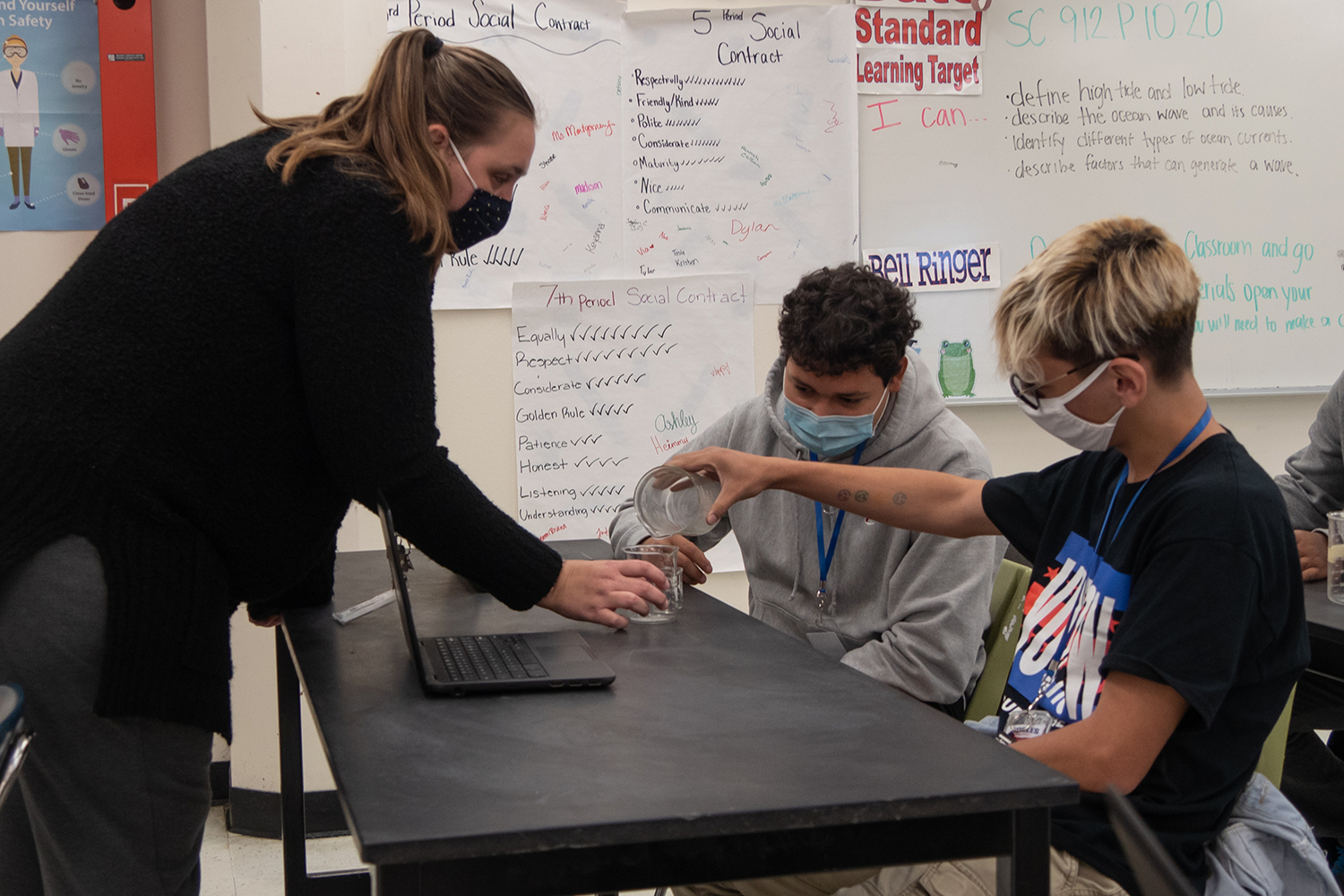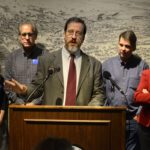UWF-Teach Program prepares STEM majors to teach in high-need school districts
At a mere 22 years old, Kara Montgomery walked into her Pine Forest High School classroom fully trained for her first official day as a science teacher.

The 2019 University of West Florida graduate prepared two years for this defining moment as a UWF-Teach Program Robert Noyce Scholar, learning how to teach science classes from mentor teachers at Ferry Pass Middle School and Booker T. Washington High School in Pensacola.
“You have your mentor teachers and they want to see good teachers come into the field, so they’re going to bend over backwards to help you and make sure you feel comfortable in what you’re doing,” Montgomery said. “The more they help us, the better off we’re going to be and it’ll have a ripple effect for Escambia County School District.”
The UWF-Teach Program is funded by a grant supported by the National Science Foundation under Grant No. 1660615 and encourages students in STEM fields to earn a major in a STEM discipline with Florida grades 6-12 Professional Teacher Certification. The program offers an exploratory course with an opportunity for STEM students to gain an early teaching experience. Other program components include paid summer internship opportunities and the Noyce Scholarship, which covers all expenses for those who qualify and commit to teach STEM courses in a high-need school district after graduation.
“It takes a community to develop a teacher and we work closely with our partners at the school districts and also with community centers that focus on STEM education,” said Dr. John Pecore, professor and associate chair of the Department of Teacher Education and Educational Leadership. “It’s a matter of developing high-quality teachers who understand the content and understand how to teach in an engaging way to help students learn the material.”
Students enrolled in the UWF-Teach program as a junior or senior can apply for a Noyce Scholarship. Noyce scholars must maintain a minimum GPA of 2.75, earn a minimum of a C- in all educational courses, and commit to teach for two years for each year of the scholarship. The scholarship covers all expenses up to $20,500 a year—an amount of money that opened the door for UWF junior mathematics major Conor Bostic to escape poverty.
“I’m not a stranger to the kind of poverty where you sometimes don’t have food to eat,” Bostic said. “Sometimes I don’t have enough money for groceries or to pay the electricity bill. This money promises me rent, electricity, internet and a laptop. They’re saying, here’s the money so you can set yourself up to be successful in college.”
Trapped in a vicious cycle of poverty since birth, 26-year-old Bostic is painfully aware of what life is like when bouncing from one shelter to the next without a true place to call home or that nauseating feeling of trying to choose which bill to pay each month.
But after a life of perpetual setbacks, Bostic is blazing a path toward a rewarding career as a high school teacher.
“My motivation to teach is because I want to be able to be the academic mentor for students who were like me in high school,” Bostic said. “Sometimes I would come to school and it would be my only meal for the day, the only time I interacted with adults who were a positive influence on me and my one opportunity to be in a structured environment, which I didn’t have at home.”
Fellow Noyce Scholar Anna Barberree, a junior mathematics major, grew up in relative comfort compared to Bostic, but she attended Northview High School where a significant portion of her classmates lived impoverished. Northview qualifies as a Title I school, meaning at least 40% of its students come from low-income families.
Barberree inherited her passion for teaching from her mom, a kindergarten teacher, but she felt a calling to teach high school math classes after tutoring classmates at Northview.
“A lot of the parents don’t have the background knowledge to help them with math homework or science homework,” Barberree said. “When you see that lightbulb turn on, it makes you feel so good because they understand it.”
To learn more about the UWF-Teach Program, visit uwf.edu/teachprogram.


